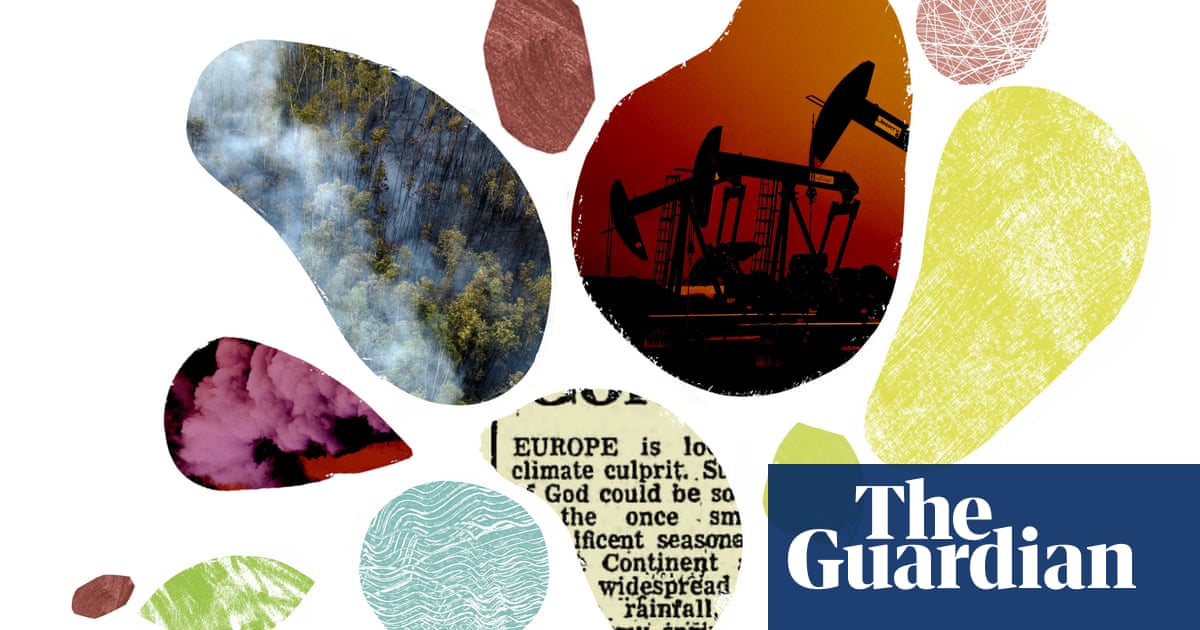
“Final warning.” “Now or never.” “Crazy off-the-charts records.” “Absolutely gobsmackingly bananas.” “We are damned fools.”
As the Guardian’s head of environment, I read the words of climate scientists every day. They tell our reporters the facts, explain the science, and warn of what is to come. But when governments and corporations still don’t act with the urgency and ambition required, it feels like words are in danger of losing their power.
As journalists, this is, of course, concerning. Our role is to communicate what is happening in the world, and why it matters, in the public interest. On the climate and nature crisis, the science is clear. We are on track for a “hellish” 3C of global heating, the UN has warned ahead of the Cop28 UN climate summit that begins this week. We have to stop burning fossil fuels, and stop destroying the natural world. Yet still, we dither and delay. Another fossil fuel project is signed off. Another forest felled. More wildlife pushed to extinction.
That is why at the Guardian we are committed to continuing to put our climate and nature reporting at the front and centre of everything we do. We have long pioneered this approach – giving our reporting on the living world more space, prominence and resources than any other media organisation. As well as covering the science of the escalating crisis, we also interrogate the power structures and political and corporate interests that so often stand in the way of meaningful action, and foreground the people fighting for real change.
This has, in turn, inspired us to take a closer look at our own organisation: from, in 2020, no longer accepting advertising from fossil fuel companies, to reducing our greenhouse gas emissions. Today, we publish our first ever biodiversity audit, to measure our impact on nature and how to reduce it.
The Guardian knows that the climate and nature crisis are linked, and in recent years, we have increased our coverage of catastrophic plant and wildlife loss and ecosystem collapse, with reporters dedicated to this beat. We also know that when the climate and nature crisis strikes, it is often those least responsible for it who are the hardest hit – so we have reporters focused on issues of climate justice, and how to reduce emissions while also tackling other inequalities.
Our growing team of specialist reporters are based around the world, from the UK to the US, Australia to Brussels and the Amazon rainforest. In the past 12 months, we have covered the big climate and nature summits, and most important scientific papers. We’ve pursued investigations into the polluter elite, carbon offsetting, methane leaks, the destruction of habitats and attacks on environmental defenders. We’ve reported on local campaigns to give people the right to roam in green spaces and tracked the health of everything from spiders to orcas and Antarctic sea ice. We’ve shined a light on individuals who have died as a result of climate catastrophe, covered a groundbreaking climate lawsuit brought by young plaintiffs and attended a deforestation meeting in the heart of the rainforest with a legendary Indigenous leader. We have examined the long history of man’s destructive relationship with nature, exposed those deliberately preventing progress for financial gain, and shared some of the solutions.
All this takes time and resources. Investigations can involve months of painstaking work, protecting sources, analysing data and travelling to the frontline of the crisis to document the human impact of decisions that, all too often, are made in remote and secretive corporate boardrooms. It is work that frequently involves teams of lawyers – an unfortunate necessity when taking on some of the most powerful and profitable companies in the world.
The only way any of this is possible is through the support of our readers. The Guardian does not have any billionaire backers. Our unique ownership model means we are beholden to nobody. But it also means we depend on you.
We all can – and must – do more. So we’ll keep reporting. One thing you can do today is support the Guardian’s journalism.
